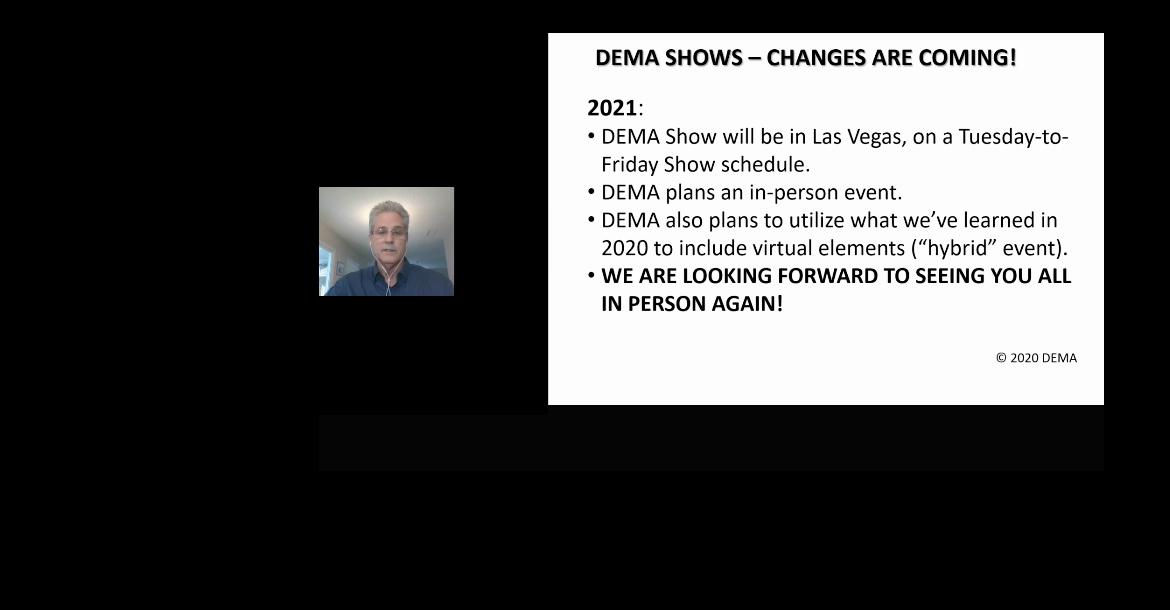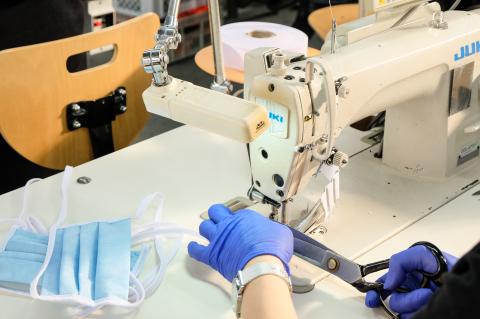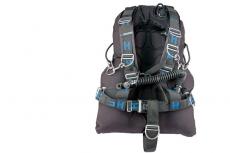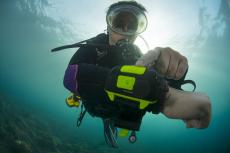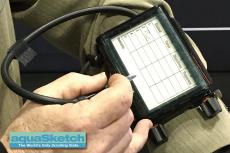DEMA Show 2020 … what a bellyflop!
The virtual replacement for the physical expo, which was supposed to be held in New Orleans, was a stop-gap measure that might have been staged with all the right intentions but fell woefully short of being of much actual use.
This review comes on the coat tails of the other virtual dive show, Scuba.Digital, which we attended a few weeks prior and the conclusions are just about the same; The conference component in which attendees can listen into a range of webinar-style presentations worked reasonably well.
The rest of it, however, such as networking activities which is an essential part and, to entities like ourselves, the most important aspect of taking part in dive shows, absolutely did not.
Inadequate platform
The platform, a slightly beefed up version of DEMA preexisting website, was woefully inadequate in providing absolutely no interactivity with other participants and was marred by technical limitations and glitches. The virtual booths were nothing but the usual static listing from previous expos amended with a lame webform where interested parties could leave you a message. That was it! To add insult to injury, the listing was capped at 1,000 characters and the limit for uploading presentation or product videos was also capped, at a meagre 75Mb. I was told that it was a technical limitation by the platform, and it could not be changed. Are you serious?
If it is a question of disk space: All of the 200 exhibitors (75Mb each) would take up just 15Gb of disk space. To put that into perspective, my mid-range mobile phone got 128Gb. If it is a question of technology being outdated or not up for the task, I get it. You cannot make a sportscar out of an old tractor. DEMA’s website has looked the same-same for ages and it wasn’t the right tool for the job. It was painfully clear that an overhaul and replacement with more current tech is way overdue.
To be fair
Granted, the good folks at DEMA had to turn the event around in a very compressed amount of time—the physical expo was only cancelled in July—and they probably had no choice than make do with the existing site and amend it as far as it was doable. Which, alas, was not very much. The site was ridden with glitches, maddening functionality and unintuitive to navigate. All in all, it was of limited practical use. For one, it took quite a long time to sign up and get approved and the process was cumbersome and did not always go through the first time round. I had to wait for three days (!) until my registration got approved.
Getting thrown off or denied access to presentations was another frequent experience.
As an exhibitor, I also had to contend with toggling between separate log-ins to access various functions in so far the system did not disconnect you all by itself. It was exasperating. I needed one separate login to access exhibitor facilities and manage our 'booth' which was just a listing really. Then I needed another one to login as an attendee in order to watch presentations. It wasn’t until Friday morning, the last day of the expo, I got the access credentials that I needed and by then it was too late to attend some of the presentations I really wanted to see. Grade: F
I also held two presentations that attendees had to struggle with finding and logging into—and which didn't get listed in the daily newsletter. That was just another disappointment.
Was it just a fundraiser?
DEMA states that it derives most of its income from the annual DEMA show, so cancelling outright would obviously put a massive gash into the organisation's finances; There is a HQ to upkeep with a handful or two of employees, infrastructure and activities to sustain. So I can certainly appreciate the need and pressure to come up with some alternative or stop-gap measure to tide over the organisation to the other side of the pandemic and times where the physical shows can hopefully resume.
But is it right or fair that exhibitors had to fork out four figures in USD to take part in an event that yields no or close to none ROI (Return On Investment)? I cannot speak for others, other than conveying that other exhibiting industry colleagues I spoke to expressed equal amounts of exasperation with the whole thing, and as far as we are concerned the results were dismal.
We take part in expos with the following three main objectives:
- To network and conduct business with current and new clients,
- to replesh our readership and upkeep our subscription lists,
- to meet and sign up new contributors.
After regular shows, we return home with thick decks of business cards that takes months to process, we generate a good chunk of business and we get plenty of new subscribers and new contributors on board. This year, however, while the show may still 'open' until the end of the year, the results on each of those three accounts is a big fat zero.
Nothing came out of this event. Nada, zilch, nichts. That is a shitty outcome regardless of your yardstick and prior expectations. Money and investments aside, we also spent a considerable amount of time on this event.
At one point, I counted the attendees listed and found a little over 800. That is just 10-12% of the usual number of visitors and they weren't even all present at one time but obviously being spread out of multiple time zones. So no wonder there was no interactivity or contacts.
Was it too soon?
Whatever you do, do it right and properly. As regards to DEMA show 2020 it would probably have been better to have moved it further up in time and instead offer a better platform and one suited for the tasks at hand. In this case deployment of some different software. The existing platform offer no interactivity other than a pitiful little webform in the 'booths'. Instead, exhibitors were forced to lead visitors outside to third-party platforms such as Zoom in order to have any semblance of interactivity and face-to-face talks. But it isn't good enough that such capabilities are not offered inside or embedded in the platform.
In any case, as a virtual show doesn't hinge on booking a physical venue and becoming locked into a specific time frame, but can be held anytime, it would have been wiser to shift it forward a bit in time and instead have a proper platform prepared and not this patchwork of functions glued onto the preexisting site. I am not aware whether any fiscal constraints or stipulations mandated that the event had be held within the calendar year. Otherwise, as far as I am concerned, it could have been moved to say January when it used to be many years ago anyway.
I take absolutely no pleasure in panning this event and I feel bad about delivering such a withering verdict to the many good people at DEMA who clearly put in a huge effort to swing this event around in no time and restage it as a virtual event. I would like to commend them for giving it a try but at the end for the day you don't get A's for effort.
Verdict
My takeaway is that this event was a learning experience and some of the lessons were painful and sobering. What is also clear is that virtual events are still a far cry from being mature enough to replace the physical meetings. There are bits and pieces, and certain functions that can certainly be moved to the virtual realm and matters that can be presented or conducted online but there is still no good replacement for face-to-face meetings, the banter and social interactions that also takes place at dive shows.
Given than video conferencing technology has been around for decades but without replacing much business travel this can hardly come as a surprise.
All this being said we have, after all, learned this much and experiences are always useful, whether they are painful or not.

